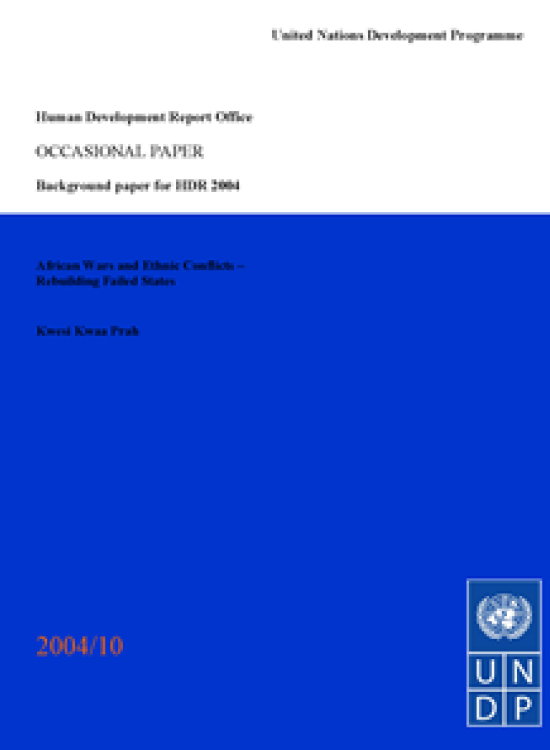African Wars and Ethnic Conflicts
Rebuilding Failed States

Download Report by Language
Document
hdr2004kwesikwaaprah.pdf
(257.69 KB)
Citation
Kwaa Prah, Kwesi. 2004. African Wars and Ethnic Conflicts: Rebuilding Failed States. New York.
African Wars and Ethnic Conflicts
Rebuilding Failed States
Posted on: January 01, 2004
There has been a popular misconception that Africa’s numerous wars and conflicts are caused by ethnicity. This paper attempts to demonstrate that this idea is mistaken. Ethnic characteristics are a universal and ubiquitous feature of humanity. It is how they are accommodated in the state and the policies, which govern their social expression, which ensure whether they become easy and enriching facilities in the plural societies of our times, or exploitable reference points by rival ruling or dominant elites. The argument here is that, it is elitist rivalry, which mobilizes ethnic sentiments for narrow political, social and economic objectives. As we enter the fourth year of the 21st century, Africa is searching for a suitable mix of ideas which are developmentally realizable and addresses the question of how to create modernity which is both African and eventually cosmopolitan. This formula by implication points to the fact that Africa needs a workable paradigm for political order, which answers to the economic, social and cultural challenges and peculiarities of African society without suggesting exceptionalism in an increasingly globalizing world in which universal institutions and shared political ideals are becoming more the rule than the exception. This will require that we eschew imitative or a ‘one-size-fits-all’ approach. One of the popular insights of our times is that, while we acknowledge the global we must permit fully the celebration of the local. Africa’s solutions will need to be defined and implementationally advised by policies, which reflect the cultural realities of the society they are intended to serve. The solutions would need to be constructed on African cultural characteristics, the cultures of mass society. But such social engineering would need to acknowledge both in theory and practice tolerance, social inclusivity and the coexistence of cultural diversity.